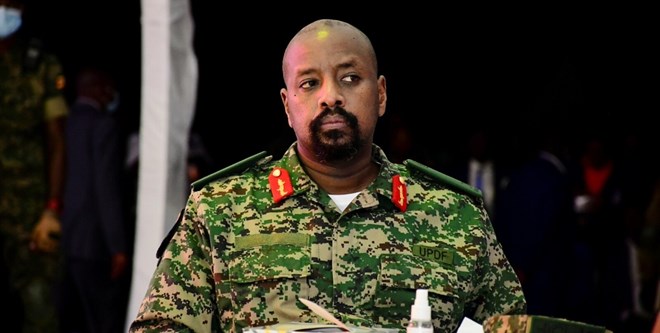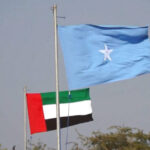KAMPALA, Uganda — General Muhoozi Kainerugaba, Uganda’s Chief of Defence Forces, has issued a demand for $100 billion from the United States, claiming compensation for Uganda’s military efforts in Somalia as part of the broader U.S.-led war on terror.
This demand, articulated through a series of posts on the social media platform X, marks a significant escalation in Uganda’s diplomatic stance towards the United States, a long-standing ally in military and security cooperation.
Gen. Muhoozi’s claim for compensation comes on the heels of strained relations between Uganda and the U.S., particularly following U.S. sanctions over Uganda’s Anti-Homosexuality Act and the country’s removal from the Africa Growth Opportunity Act (AGOA), which had provided duty-free access to U.S. markets for Ugandan products.
In his posts, Gen. Muhoozi not only demanded financial compensation but also drew a comparison between Uganda’s military achievements in Somalia and the situation in Ukraine, suggesting that Uganda’s contributions have been more effective yet less recognized.
The demand has sparked a mix of reactions on X, with some users supporting Uganda’s claim, citing the significant sacrifices made by Ugandan soldiers in Somalia. Others, however, have expressed skepticism over the feasibility of such a demand, questioning the basis of compensation in global military engagements where direct payments for military losses are not standard practice.
Historically, while there are mechanisms for compensating for civilian harm or specific military incidents, the demand of this magnitude for military losses in a foreign operation is unprecedented. The U.S. might engage in diplomatic talks or offer alternative forms of aid, but a direct payment of $100 billion seems unlikely based on current international norms.
This situation underscores the complex dynamics of military alliances, compensation for losses, and the political messaging that can accompany such demands. While the direct financial compensation seems improbable, Gen. Muhoozi’s demand could prompt discussions on the valuation of military contributions in international conflicts and might set a precedent for how nations negotiate their roles in such engagements.
The international community watches closely to see how this bold demand will impact future diplomatic interactions between Uganda and the United States, potentially influencing global perceptions of Uganda’s military and political ambitions.





